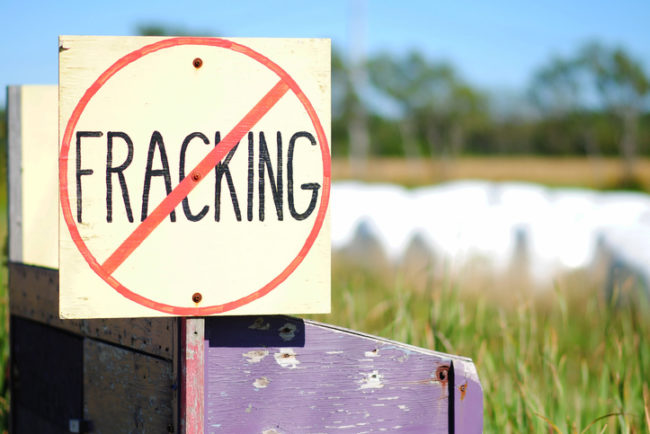A federal court in New York recently dismissed a landowner’s claim that the state’s ban on hydraulic fracturing violated the takings clause of the Fifth Amendment and due process rights.
In Morabito v. The State of New York, et. al., the plaintiffs filed a complaint in the Western District of New York, asserting that the state’s decision to prohibit high-volume fracking activities constituted a regulatory taking and/or arbitrary and irrational restriction on plaintiff’s property rights.
The plaintiffs, who are farmers, own various properties in western New York atop the gas-rich Marcellus and Utica shale formations. They asserted that they, as well as other farmers, should be permitted to extract natural resources from below their properties as it would bring prosperity to the area, which currently struggles to afford increasing property taxes. The plaintiffs did not seek monetary damages specifically; rather, they sought relief in the form of an injunction to permit them to engage in fracking activity on their own land. Since 2014, New York placed a moratorium on certain forms hydraulic fracturing in the state.
Before filing in federal court, the plaintiffs pursued claims in New York’s state court system, arguing that the state’s decision to issue the moratorium was arbitrary and capricious and deprived landowners of due process. That prior suit was unsuccessful, resulting in dismissal due to lack of standing.
In the federal case, the District Court determined that the state, as well as the various governmental agencies named in the complaint were immune from suit as proscribed by the Eleventh Amendment. The court further determined the takings claim was inapplicable because the plaintiffs were not seeking monetary damages. Notably, the court did not decide the due process claim because it had previously been the subject of the prior state court case.
We will monitor this case to determine if any appeal is filed and, moreover, whether other similar challenges raising different questions regarding the moratorium are filed.

